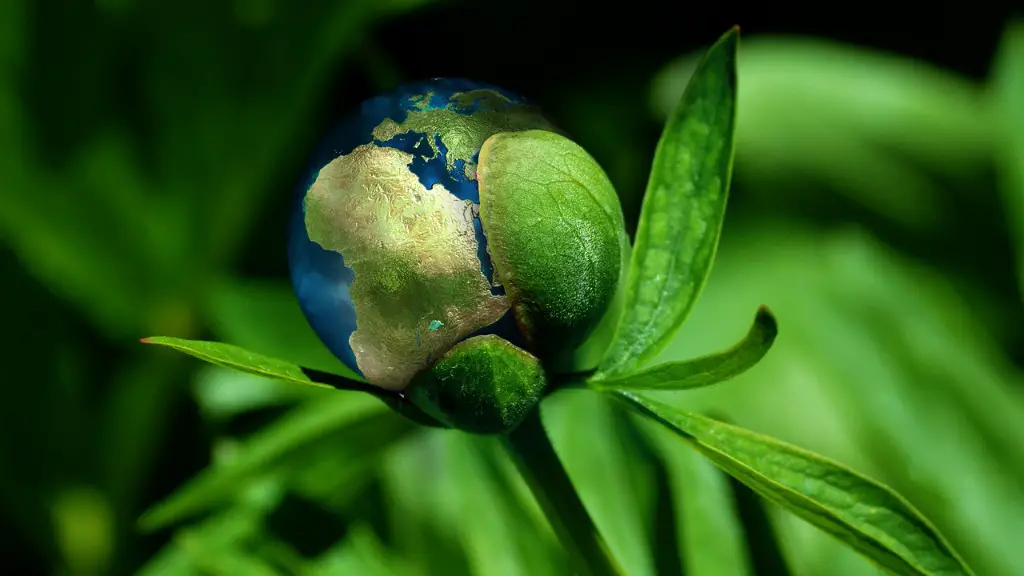Plant ecology is the scientific study of the interactions between plants and their environment. This includes the study of how plants adapt to their environment, how they interact with other organisms, and how they influence their physical and chemical environment. Plant ecology is a complex and dynamic field of study that has important implications for our understanding of the natural world and our ability to manage and conserve our natural resources.
Plant ecology is the study of how plants interact with their environment. This includes the study of how they obtain resources such as water and nutrients, how they respond to environmental conditions such as temperature and light, and how they interact with other organisms such as animals and other plants.
What is an example of plant ecology?
The distribution of temperate deciduous forests in North America is an example of how environmental factors can affect the survival of plants. Drought or flooding can have a significant impact on the ability of plants to survive, and competition among desert plants for water can also be a significant factor. Herds of grazing animals can also have a significant impact on the composition of grasslands, as they can graze on the grasses and other plants that make up the grassland.
Population ecology deals with the dynamics of populations, including births, deaths, and migration.
Behavioral ecology deals with the study of animal behaviors, including how animals interact with their environment and with each other.
What is the simple definition of ecology
Ecologists study the relationship between living things and their habitats. They try to understand how these relationships work and how they can be used to manage and conserve our natural resources.
Molecular ecology is the study of how genes and molecules affect and are affected by the ecology of an organism.
Organismal ecology is the study of how individual organisms interact with their environment.
Population ecology is the study of how populations of organisms interact with their environment.
Community ecology is the study of how communities of organisms interact with their environment.
Global ecology is the study of how the ecology of the planet as a whole affects and is affected by the ecology of its individual parts.
Landscape ecology is the study of how the ecology of an area is affected by its physical features.
Ecosystem ecology is the study of how ecosystems interact with their environment.
What is the importance of plant ecology?
Plants play an important role in maintaining the balance in an ecosystem and driving most of the important biological processes. They improve their habitat by constantly filtering the air, water, and soil they reside in. Plants also help to regulate the climate and provide food and shelter for other organisms.
Plant ecology is the study of how plants interact with their environment. This includes the study of how they affect the environment and how the environment affects them. Plant ecology can help us make the right decisions about human impact on an area, monitor invasive species and change behavior to promote the growth of threatened or rare species.
What is an example of ecology?
Ecosystem ecologists study how different elements in an ecosystem interact with each other. For example, they might study how beaver dams affect water flow through a forest ecosystem and how that impacts the survival of aquatic species or the distribution of sediment. A coral reef ecologist might study how changes in water temperature impact coral survival. By understanding these interactions, ecosystem ecologists can help identify ways to protect and conserve ecosystems.
Ecology is the study of how organisms interact with their environment. It focuses on the relationships between organisms and their physical and biotic surroundings. These interactions can be positive, negative, or neutral. Ecology is a branch of biology that is divided into several subfields, including behavioral ecology, community ecology, ecosystem ecology, and population ecology.
What are the 5 main levels of ecology
Organism: Single living things. Includes plants, animals, fungi, and single-celled organisms.
Population: All the members of a species that live in a particular area.
Community: All the populations of different species that live in a particular area.
Ecosystem: All the living things in a community as well as the non-living things with which they interact, such as air, water, and soil.
Biosphere: All the ecosystems of the world as well as the atmosphere.
It is estimated that 27,000 trees are cut down every day to make toilet paper alone. Humanity uses an estimated 80 trillion aluminum cans every year. Plastic waste is estimated to kill 1 million aquatic animals in the sea every year. Glass takes at least 4000 years to break down in full.
What are the 7 principles of ecology?
Nature knows best
All forms of life are equally important
Everything is connected to everything else
Everything changes
Everything must go somewhere
Ours is a finite Earth
Nature is beautiful and we are stewards of God’s creation.
Ecology is a branch of biology that deals with the study of the relationships between organisms and their environment. It plays a vital role in understanding the abundance and distribution of organisms, as well as the interconnectedness between all life forms and the Earth. Ecologists work to develop ways to sustainably manage the Earth’s resources so that all life can continue to thrive.
What are the 2 main branches of ecology
There are two branches of Ecology: Autecology and Synecology. Autecology is the study of the relationship of an organism to its environment. Synecology is the study of the relationship of different species of organisms to each other and to their environment.
The Ten Principles of Ecology:
1. Evolution organizes ecological systems into hierarchies.
2. The sun is the ultimate source of energy for most ecosystems.
3. Organisms are chemical machines that run on energy.
4. Chemical nutrients cycle repeatedly while energy flows through an ecosystem.
5. dN/dt=B-X+I dS/dt=D-X+I
6. Nutrients are essential for all organisms.
7. Energy enters ecosystems as sunlight and leaves as heat.
8. Ecosystems are composed of connected food webs.
9. All organisms interact with their physical environment.
10. Ecological systems are dynamic and ever-changing.
Why is ecology important 3 reasons?
Ecology is the study of the relationships between organisms and their environment. It is a vital science that helps us to understand how our world works and the impact that human activity is having on the planet.
Ecology is important for many reasons. It helps us to understand the natural world and the complex web of life that we are a part of. It also provides vital information that can be used to manage our environment in a sustainable way, ensuring that future generations can enjoy the same benefits that we do.
Ecology is a relatively young science, but its importance is only likely to increase in the coming years as we face up to the challenges of climate change, dwindling resources, and the loss of biodiversity. With a better understanding of ecology, we can make informed decisions that will help to protect our planet and ensure a brighter future for all.
It is clear that plants play a major role in shaping the environment. They store carbon, fix nitrogen and produce oxygen, which all have a significant impact on the surrounding ecosystem. Additionally, plants can also help to regulate weather patterns, provide flood defence and purify water. Not to mention, they provide us with food and offer solace and inspiration. Therefore, it is evident that plants play a key role in our environment and we should do all we can to protect them.
What is the background of plant ecology
Plant ecology is the study of how plants interact with their environment. This includes the study of how plants obtain resources such as water and sunlight, how they defend themselves against predators and compete with other plants, and how they influence and are influenced by their ecosystem. Plant ecology originated during the late nineteenth century in Germany and Scandinavia. Early plant ecologists pursued two broad areas of research: synecology, the study of plant communities, and autecology, the study of the adaptation of species to their environments.
There is no one word that is a perfect synonym for “ecology”, but there are several closely related terms that may be useful in different contexts. “Ecosystem” and “biome” both refer to the study of populations of plants and animals in a particular environment. “Bionetwork” and “biota” both refer to all the living things in a particular area. “Environment” and “environ” refer to all the external conditions that affect an organism’s life. “Flora and fauna” refers to the plants and animals in a particular area. “Ecological community” refers to a group of interacting organisms in a particular environment. “Ecosphere” and “biosphere” both refer to all the Earth’s environments and their interactions.
Warp Up
Plant ecology is the study of how plants interact with their environment. This includes their physical and chemical interactions with their surroundings, as well as their interactions with other organisms.
In conclusion, plant ecology is the study of how plants interact with their environment. This includes factors such as the soil, water, sunlight, and temperature. It also includes the study of how plants interact with other organisms, such as animals, fungi, and bacteria.





